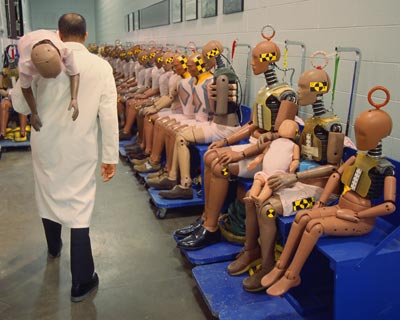Enjoyed reading Brian Lee Crowley’s recent Globe & Mail editorial, “There Will Always Be Work — It’s Part of the Human Condition,” which may ultimately prove correct, but some of his reasoning seems unduly optimistic to me.
One example: The writer argues work will persist because we need it to from a psychological standpoint. While we can will some things we desire into being, we shouldn’t accept we absolutely can. Down deep, I always feel toil will somehow find us, but jobs need not only exist but also must pay a living wage. In the case that enough good-paying employment doesn’t materialize, we better have a solid backup plan or we risk societal collapse.
Crowley also is of the opinion that Universal Basic Income is a bad idea because work provides a societal good beyond just the product or service it creates. It certainly does, though we should probably experiment with at least negative income tax since industries are bound to increasingly rise and fall rather quickly, leaving many rough patches in their wake. Not every former cab driver will be able to be upskilled into a self-driving car engineer. Some will be left, whether temporarily or permanently, on the side of the road.
An excerpt:
This nightmare scenario of vast armies of purposeless human wraiths wandering the earth, despite its emotional resonance, however, is not borne out in the real world.
First, the idea that there is a fixed amount of work is quite wrong, making the fact machines do a growing amount of work irrelevant. Work is necessary to satisfy human wants and needs, and these are infinite.
Think about how much of the average person’s time is spent pondering what they would do if only they had the resources. Every time you picture the addition you want to put on the house, the pleasure you could get from the latest computer gadget, or how to find the money to keep your ageing mother in safe and humane care, you are thinking about work that you want to have done that isn’t being done now. Want to learn a language, travel abroad or get off the bus and into a car? These are all unfulfilled human desires and therefore sources of demand for work not now being performed.
Second, the obstacle to having this work performed is that we are not rich enough. The available resources are already occupied just producing what we currently consume. But mechanisation allows us to produce more with less and therefore to satisfy more human desires. As the Adam Smith Institute’s Tim Worstall points out, when 95 percent of all people had to work the land so that everyone could eat, hardly any labour was available for other purposes. Mechanisation of agriculture in the UK helped to create a society in which ten percent of the population can work for the National Health Service. In the US, technologically-unjustified employment fell in old industries like rail, steel and autos so that hundreds of thousands of people could be employed at Apple, Amazon, Microsoft and Wal-Mart, not to mention the million start-ups from which these giants grew.
Third, understanding that all work is created by human need and desire means that the distinction between goods and services is meaningless. The idea that “great” societies make “things” (cars, air conditioners, steel) and services are somehow an inferior second cousin done by people who can’t get a real job is nonsensical. The need for intangibles like mental stimulation or culture or art or entertainment or accountancy is no different in principle than the need for tangible things. But because we must satisfy our physical needs first, only wealthy societies with high degrees of labour-freeing mechanisation can afford a vast creative class of chefs, musicians, painters, gamers, videographers, graphic designers, hackers, bloggers, yoga teachers and service entrepreneurs of every description. That’s why open societies that welcome dynamic creative change are better for people, especially if the growth change generates is used in part to help everyone make the transition from the old to the new. Here is where we are not yet getting it right.
The final reason work will not disappear is one of the most basic cravings of people: to relate to one another. Outside family, love and friendship work is probably the most important way we do this. We see the value in what we do reflected back at us by the value other people attach to it. That is why being unemployed is so soul-destroying, whereas when we work we feel valued. And no amount of social welfare can hide that fact, however justified and invaluable it may be in helping us get training or tiding us over temporary bouts of unemployment.•
Tags: Brian Lee Crowley

